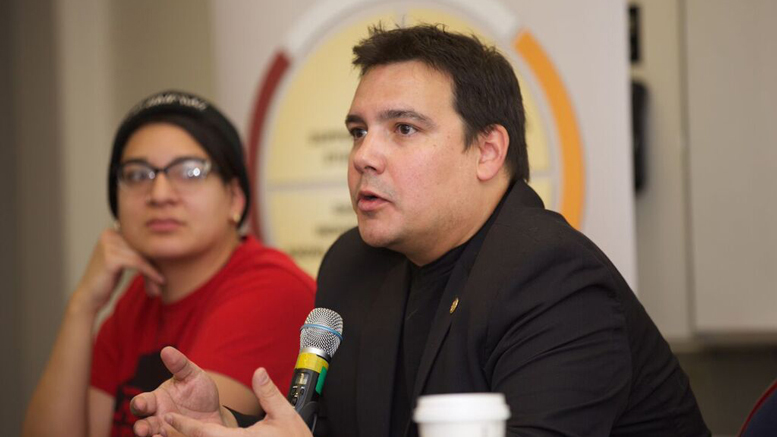Winnipeg educators gathered to discuss flaws in the education system, including lack of representation, at Forth Cafe Tuesday.
The lecture was part of the U of M’s extended education division’s dean’s lecture series. Dean of extended education Gary Hepburn said the lecture intended “to bring current thinking as well as information about initiatives to the city of Winnipeg.”
Speakers included Dorota Blumczynska, executive director of the Immigrant and Refugee Committee of Manitoba, and Jordan Bighorn, program manager of pathways to education at the Community Education Development Association (CEDA).
U of M native studies professor Niigaan Sinclair also spoke at the lecture.
One of the main issues raised addressed where the speakers believed Indigenous students and students new to Canada are being failed in the education system.
“The biggest challenge that we face within our community is that education has been the most brutal, violent, coercive and assimilative tool for Indigenous peoples,” Sinclair said.
Blumczynska noted Indigenous and new Canadian students often fail to see themselves within the education system because of the educational material being presented.
“They are not able to place themselves in their educators because they’re not reflected in that,” Blumczynska said.
“They’re not able to place themselves in the curriculum because it also often denies — it doesn’t even touch on — their life experiences and the histories of their global communities.”
Bighorn spoke of the importance of curricular representation to the success of the students he works with at CEDA.
The reason one student in the pathways to education program stayed for nine years and graduated is because “she kept being reminded of who she was when she came to see us,” Bighorn said.
Sinclair brought up the concept of education as a primary tool for social change.
“Education for social justice, to me, is doing what the education system should actually be doing, which is offering young people visions of who they are,” he said.
Though Sinclair noted some improvements have been made to the education system, he said there is still extensive to be done, using the typical Canadian history textbook as an example.
“There used to be Indigenous people four pages at the start [of the textbook] and then they disappeared,” Sinclair said in an interview.
“Now, we have 10 pages, but we still have 450 pages that are still absent of Indigenous people.”
Sinclair noted events like Orange Shirt Day or courses on truth and reconciliation are good starts, but “we’re only at a very early stage in terms of understanding that it doesn’t just involve the day, it’s actually the entirety of the system,” he said.
“It doesn’t matter how many treaty acknowledgments we do, it doesn’t matter how many shirt days we do,” Sinclair said.
“Those are just the days that facilitate the conversations to talk about things like power, to talk about change and how we actually implement those changes.”

